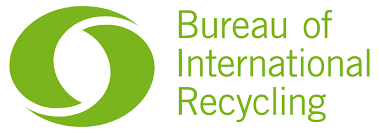NEWS
BIR warns: “Circular Economy must remain global”
Last week, the European Commission revealed the proposed changes to its 2013 EU Waste Shipment Regulation. The Regulation controls both imports and exports, of both hazardous and non-hazardous wastes, within the EU and to third countries outside the EU. The existing Regulation had set the rules to ensure potential adverse effects on the environment and public health caused by shipments of waste are avoided. With this proposal, the Commission intends to strengthen those rules.
BIR fully supports regulations that aim at the protection of both human health and the environment, and also supports that that recyclables can be moved to facilities that are environmentally soundly managed, and that raw materials from recycling can be transported to manufacturing industries in the global circular economy.
However, the proposal significantly diverges from free and fair trade in an open intention to reduce the cost of materials within the EU, allowing those in the EU “to use more waste as feedstock, which they should be able to purchase at a lower price”. BIR stresses that these trade restrictions, artificially lowering the costs of materials in the EU for the EU manufacturing industry, will affect the capacity of the European recycling industry to invest in efficient and innovative recycling capacities and processes. Also, by cutting access to outside markets, they will result in excess volumes which will be lost to the global circular economy. Such changes will finally have a counterproductive effect on the implementation of a truly global circular economy.
BIR, together with its European Member associations, is willing to contribute to the long co-decision process that will now start, involving the European Parliament and the Council of Ministers throughout the next year. With regards to the Commission’s statement “A robust and integrated market for secondary raw materials is a cornerstone of a well-functioning circular economy”, BIR Trade & Environment Director Ross Bartley comments: “The regulatory burdens placed on EU secondary raw material suppliers by this proposal far outweigh those on competing primary raw materials suppliers and their imports into the EU.”
Background
With this proposal the European Commission wants to reduce EU exports to third countries of waste for recycling, as well as for ‘other forms of recovery’. Already, most all waste for disposal operations such as incineration or landfill have been prohibited from export outside of the EU.
Often it is said the 'devil is in the detail', and there is extensive detail regarding exports of wastes for recycling to third countries, including but not limited to Articles 37 to 40 for exports to non-OECD countries, and Articles 41 to 42 for exports to OECD countries. Then there are further details in the Annexes as follows:
• A new Annex VIII introduces a 'Request for inclusion in the list of countries to which the export of non-hazardous waste destined for recovery from the European Union are authorized'. Where Part 1 is the 'Request to receive waste(s) from the European Union', and Part 2 is 'Information and supporting evidence'. The supporting evidence required to be provided by third countries is very extensive.
• Annex IX provides in Part 1 'EU legislation designed to ensure the environmentally sound management of waste' and Part 2 'International guidance on environmentally sound management of waste'.
• Annex X gives criteria designed to demonstrate that a facility manages wastes exported from the Union in an environmentally sound manner'.
Over many years the EU has been continually increasing separate collection of used and end-of-life goods and materials, the consequences of these well-supported actions, and the efforts of all citizens, is that there is an excess of recyclables collected in the EU, more than is currently consumed in the EU. Without buyers within the EU these excess steel scraps, aluminium scrap, copper scrap, and scrap paper are exported to manufacturers in third countries, that €13 billion trade provides revenue for EU Member States.




